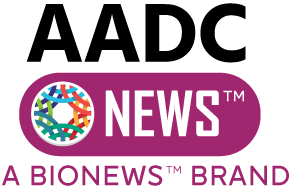Medable, Every Cure Partner on Drug Repurposing for Rare Diseases
Aim is to speed discovery of new treatments in diseases like AADC

Medable, a technology platform for clinical trials, has partnered with the nonprofit Every Cure to speed the discovery of treatments for rare diseases — such as aromatic l-amino acid decarboxylase (AADC) deficiency — with the help of drug repurposing.
The partners will focus on identifying new uses for existing medicines.
“Patients around the world die every day from diseases that could have been cured by a drug sitting on the shelf at their local pharmacy,” David Fajgenbaum, MD, Every Cure’s co-founder, said in a press release.
Every Cure’s aim is to scale up an innovative treatment repurposing research approach to find therapies for what it says are approximately 9,000 disorders, many of them rare diseases, that lack a federally approved treatment.
Investigating an approved drug for repurposing
Developing therapies and cures, and then bringing them to market, can often take decades and cost billions of dollars. Repurposing drugs already approved — and therefore comprehensively tested for safety — for one health condition may help in treating another disease.
At the least, such drug repurposing can help accelerate the development of a safe and effective treatment for a different disorder, while reducing costs. This is particularly relevant for rare diseases, where pharmaceutical investments are limited.
“Every Cure is dedicated to unlocking all diseases that existing drugs can treat by developing a comprehensive open-source database of drug repurposing opportunities and launching clinical trials of the most promising treatments,” Fajgenbaum said.
Launched in September with the Clinton Global Initiative, the non-profit seeks to move to clinical trials the most promising therapy candidates for U.S. Food and Drug Administration (FDA) approval and/or off-label clinical use. Drugs are said to off-label meds when used for a purpose that differs from what the FDA approved.
In the partnership, Medable will provide specialized software and services for the remote international clinical studies to be conducted by Every Cure. To date, the company’s software-as-a-service platform has been used in some 300 clinical investigations that included more than 1 million participants from 60 countries.
Medable’s digital platform streamlines decentralized trials’ design, recruitment, retention, and data quality. It then links patients, study sites, and clinical study teams to that data to improve patient access, trial experience, and outcomes.
According to the company, use of its platform has resulted in 200% faster trial enrollment and a 50% cost reduction.
Patients around the world die every day from diseases that could have been cured by a drug sitting on the shelf at their local pharmacy
Fajgenbaum was a medical student when he was diagnosed in 2010 with Castleman disease, a rare condition characterized by excessive immune system activation and inflammation that can cause damage in several organs.
At the time, there was no known cure or potential treatments in development. Because Fajgenbaum himself identified an existing medication, sirolimus, that could be repurposed for Castleman, he has been in disease remission for more than eight years.
Since his discovery, he and his team at the University of Pennsylvania’s Penn Medicine have identified repurposed therapies for Castleman, cancer, and COVID-19. Fajgenbaum established Every Cure to replicate and scale his treatment-repurposing process.
Every Cure developed a tool — dubbed the MATRIX — that identifies and ranks promising therapies through artificial intelligence (AI) and machine learning. Machine learning is a form of AI that uses algorithms to analyze data, learn from its analyses, and then make a prediction about something.
A pilot study identified 106 possible treatment repurposing opportunities in the initial 147 disorders.
“David Fajgenbaum’s story is an inspiration, and it reinforces the critical need for innovation in clinical research,” said Michelle Longmire, MD, Medable’s cofounder and CEO.
“We live in an era of exponential improvements in medicine, but traditional clinical trials are a bottleneck in the system — and only yield 50 new FDA treatments per year,” Longmire said, adding, “With new technologies and new research techniques, we believe it’s possible to drastically increase the number of therapies in development, and Every Cure will be an important leader in driving that change.”
Fajgenbaum said Every Cure is “thrilled” to team up with Medable “to bring our vision to life and help address this critical industry challenge.”
AADC deficiency affects the nervous system, obstructing communication between nerve cells. Only about 120 cases of the extremely rare genetic disorder have been reported to date.
While there remains no cure, the first disease-modifying therapy for AADC deficiency was approved in July last year in the European Union. That was followed by approval in November in the U.K.
Called Upstaza (eladocagene exuparvovec), the gene therapy is expected to be reviewed for approval in the U.S. later this year.







